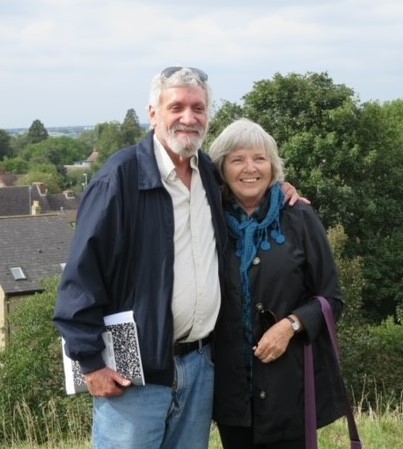Students Awarded Grants from The Hitchcock-Kelly Fund for Human and Indigenous Peoples’ Rights
Departmental News
Posted: May 12, 2025 - 12:00pm

This year, the UNM Department of Anthropology and the UNM Department of Native American Studies have made seven small grant awards to graduate students in both departments. The students will receive funding to work on research projects directly related to human rights, and will present their research at a conference at UNM in Spring 2026. The awardees and their projects are listed below:
Adesbah Foguth (Archaeology PhD Program, first year): Adesbah will use her Hitchcock Kelly award to advance her project of mapping the ancient and modern land-use activities in the newly created USEPA Lukachukai Mountains Mining District (a superfund site). Overlaying the USEPA's radiation data onto the lidar and photogrammetric data and drone imagery will provide a fascinating and informative view of the wide variety of land-uses and activities in the Chuska Mountain range. The lidar data collected will be incorporated into the GIS community mapping project as part of her dissertation work.
Andrew Gorvetzian (SCALA PhD Program, fifth year): Andrew's dissertation project with Afro-Indigenous Garifuna communities proposes the co-creation of a digital platform owned by and open to all Garifuna language teachers that centralizes Garifuna language materials. The platform will create new Garifuna language learning materials that combine digital storytelling with language teaching methods as developed in dialogue with Garifuna language teachers. The Hitchcock-Kelly grant supports several weeks of fieldwork in Honduras, which features the richest concentration of Garifuna culture and language.
Ruben Leyva (Native American Studies, second year): Ruben will use the Hitchcock Kelly grant to conduct research that supports the federal acknowledgment petition of the Gila Apache tribe, a non-federally recognized tribe in New Mexico. His work addresses human rights issues and the historical conditions that led the federal government to remove the Gila Apache from the list of recognized tribes in 1941.
Jordan Martinez (Evolutionary Anthropology PhD Program, third year): With the Hitchcock Kelly grant, Jordan will participate in research among Indigenous peoples of Peninsular Malysia, collectively known as the Orang Asli. The Orang Asli are traditionally hunter gathering people as well as subsistence farmers, with rich musical and dance traditions. This research will be undertaken with the Orang Asli Health and Lifeways Project to understand how recent lifestyle changes are impacting their health and well-being. Collaborative research with three rainforest communities will focus upon music and dance in conjunction with efforts to curtail rainforest logging and palm oil plantation expansion.
Laura Steele (Archaeology PhD Program, ninth year): With funding from the Hitchcock-Kelly Grant, Laura will be able to process approximately 12 charcoal samples from the site of Cormallín, Argentina to address questions about the rate of dietary change among Indigenous peoples and if/how they engaged with Spanish imperialism in this region. This research will contribute to the archaeological literature by investigating the extent to which local people used food to condition, change, and actively maintain the structures that permeated their every-day lives.
Nicole Swentzell (Native American Studies PhD Program, second year): Using the Hitchcock Kelly grant, Nicole will gather the stories of Pueblo wildland firefighters to share their stories with their families, communities and abroad. Her research seeks to represent these communities in a positive way and demonstrate what Linda Tuhiwai Smith calls celebrating survival. Within the patriarchal paradigm of Euro-American settler colonialism, she argues that it is even more important to uplift the stories of Pueblo women who have also served as wildland firefighters and their contributions to land stewardship.
Cameron Zarrabzadeh (SCALA PhD Program, sixth year): Cameron's research focuses on the political ecology of uranium mining and its toxic byproducts (AUMs; tailings piles) sited on Indigenous Diné land in northwestern New Mexico. The Hitchcock Kelly grant will support fieldwork that describes relations of power at the intersections of settler colonialism, extractive capitalism, and the environmental regulatory policies of U.S. federal agencies. He is particularly interested in the role of U.S. regulatory agencies in determining environmental policy decisions regarding the remediation of uranium mine waste.
